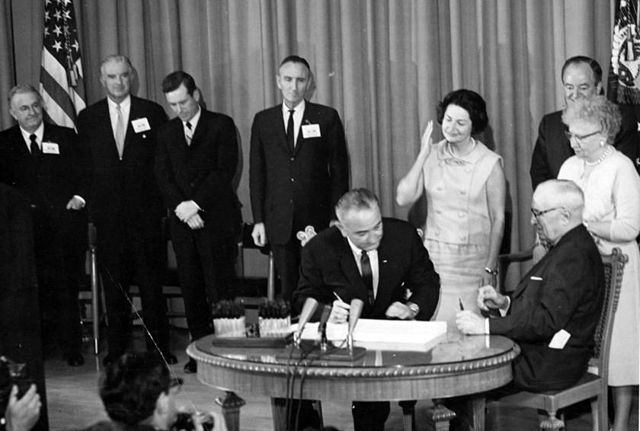The Model Cities Program was an element of U.S. President Lyndon Johnson's Great Society and War on Poverty. The concept was presented by labor leader Walter Reuther to President Johnson in an off-the-record White House meeting on May 20, 1965. In 1966, new legislation led to the more than 150 five-year-long, Model Cities experiments to develop new anti-poverty programs and alternative forms of municipal government. Model Cities represented a new approach that emphasized social program as well as physical renewal, and sought to coordinate the actions of numerous government agencies in a multifaceted attack on the complex roots of urban poverty. The ambitious federal urban aid program succeeded in fostering a new generation of mostly black urban leaders. The program ended in 1974.
Report of the Seattle Model City Program, December 1970
The Great Society was a set of domestic programs in the United States launched by President Lyndon B. Johnson in 1964 and 1965. The term was first referenced during a 1964 speech by Johnson at Ohio University, then later formally presented at the University of Michigan, and came to represent his domestic agenda. The main goal was the total elimination of poverty and racial injustice.
The pens used by President Lyndon B. Johnson to sign Great Society legislation
President Johnson signs the Voting Rights Act of 1965.
The August 1964 signing of the Poverty Bill
President Johnson signs the Social Security Act of 1965.





